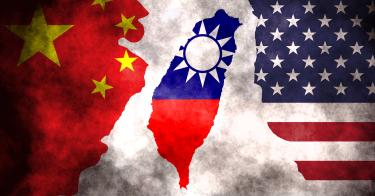The United States’ policy of “strategic ambiguity” has helped prevent conflict in the Taiwan Strait for decades by creating dual deterrence: neither Beijing nor Taipei dares provoke a war for fear that the United States would—or from Taiwan’s perspective would not—intervene. Strategic ambiguity isn’t perfect, but it works.
Proposals for abandoning strategic ambiguity in favor of greater clarity about U.S. involvement in a conflict over Taiwan are not without merit. For example, officially committing the U.S. to intervene militarily if Taiwan is ever attacked would make it harder for a future president to water down support for the island and ensure Beijing never believes it could attack Taiwan without suffering excessive military losses.
But a shift to strategic clarity could create more problems than it solves.
>>> Cross-Strait Relations in the Lai Era
A formal U.S. security commitment to Taiwan akin to a defense treaty would probably cross Beijing’s red line, outlined in its Anti-secession Law. Domestic legitimacy concerns would likely compel the Chinese leadership to respond to such a development with force. Taipei recognizes this risk and would most likely resist any effort to create a formal treaty-like arrangement with the U.S., making it a non-starter.
Strategic clarity without a formal security commitment raises different concerns. It’s unclear whether it would be considered more credible than the current policy, but it could further enflame tensions by appearing to confirm Beijing’s belief that Washington’s end goal is Taiwan independence.
In Taiwan, crossing Beijing’s red line on formal independence is currently a fringe issue politically, but it may not always be. Political winds shift, and offering Taipei an unconditional security guarantee could strengthen radical pro-independence factions that are less cautious about Beijing’s red lines.
To preserve dual deterrence and avoid needlessly provoking China, most serious proposals for greater strategic clarity call for conditions. But to introduce overt conditions to a U.S. security commitment creates other problems.
To state unambiguously that the U.S. would only defend Taiwan against an unprovoked attack is not in America’s interest. America’s economic and security interests in Taiwan would not disappear if Taipei provoked Beijing. While it would be imprudent for the U.S. government to acknowledge this, it should avoid creating legal or doctrinal impediments to taking any action its interests may demand. Strategic ambiguity allows for this.
>>> China and the Global Culture War: Western Civilizational Turmoil and Beijing’s Strategic Calculus
Operationally, strategic clarity only adds value in the context of a military attack or perhaps a blockade. It can’t deter the gray zone threats Taiwan faces daily, and to overtly include them in a security commitment risks delegitimizing the commitment when it can’t be enforced.
Meanwhile, to specify that certain gray zone tactics fall outside the commitment would embolden Beijing’s employment of these tactics, which are designed to gradually make unification a fait accompli. Ambiguity is likely the most effective approach to dealing with a form of warfare that is, by nature, ambiguous.
Strategic ambiguity isn’t perfect, but it works. It remains credible enough that Beijing presumes the U.S. would intervene militarily if it ever attacked Taiwan. Until this changes, American and Taiwanese interests are best preserved by maintaining ambiguity.
This response originally appeared in Uklad Sil



